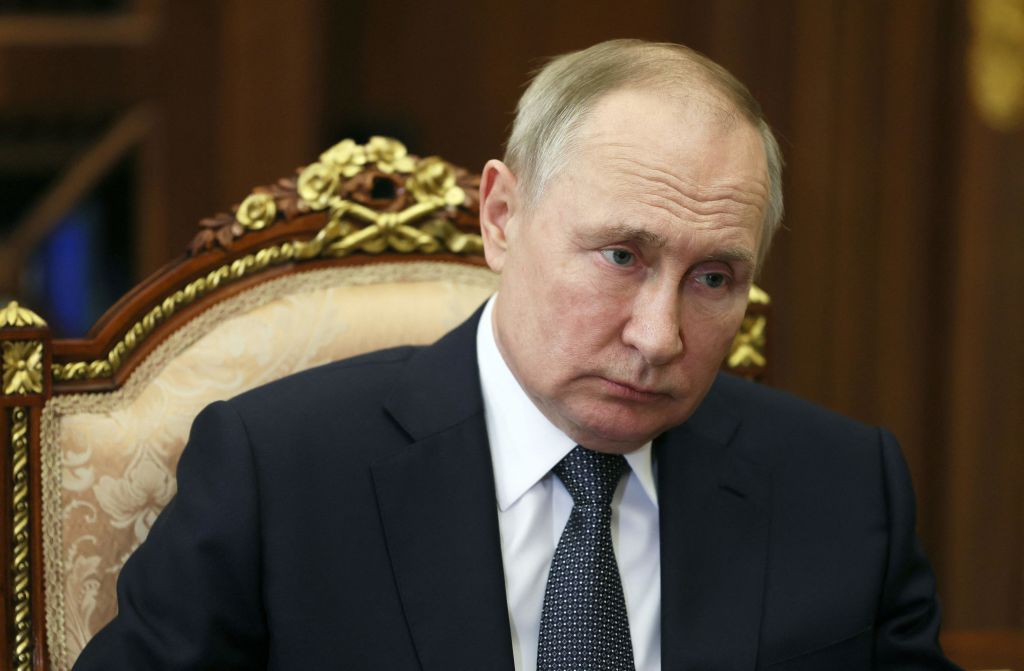As 2022 draws to a close, it's worth celebrating that this hasn't been a good year for authoritarianism.
This might seem Pollyannish. After all, just last month, the International Institute for Democracy and Electoral Assistance issued a report concluding that democracy is in decline while authoritarianism is deepening. Freedom House cataloged "The Global Expansion of Authoritarian Rule" back in February. "The global order is nearing a tipping point," the nonprofit declared, "and if democracy's defenders do not work together to help guarantee freedom for all people, the authoritarian model will prevail." A Pew study of global attitudes concluded in May: "As democratic nations have wrestled with economic, social and geopolitical upheaval in recent years, the future of liberal democracy has come into question."
I don't dispute any of that, with one caveat: The future of liberal democracy is pretty much always an open question, because liberal democracy is always under threat from the authoritarian temptation. Authoritarianism comes naturally to humans, while liberalism has to be taught—and fought for. Whenever liberal democratic capitalism seems to stumble—which is often—authoritarianism suddenly seems like a viable alternative (I wrote a whole book about this).
Sadly, authoritarianism can sound appealing in the abstract, but people tend not to like it when they actually experience it. And while it often works very well for the authoritarians themselves—Vladimir Putin may, in fact, be the world's richest man—it fails for the average citizen.
People need to see the failures. As Edmund Burke said, "Example is the school of mankind, and they will learn at no other."
But it isn't failure per se that undermines authoritarianism. Every system is flawed, every government makes mistakes. It is the inability to admit and remedy mistakes that is authoritarianism's Achilles' heel.
Over the weekend, the New York Times published an article on how Putin badly blundered in his attempt to conquer Ukraine in a matter of days.
Perhaps the biggest lesson is that in a system lacking a free press, democratic oversight, and any incentive to point out problems, the war planners became blind to even the most obvious problems. Instead of the "walk in a park" Putin had been assured, the Russian military revealed itself to be shot through with corruption and ineptitude—because the dumbest thing you can do in Putin's Russia is tell him something he doesn't want to hear.
Putin and his brand of despotism had a lot more fans at the beginning of 2022 than at the end, because his disastrous war demonstrated how much stronger he was on paper than in reality.
Iran is another example for mankind. The ruling regime is having its worst crisis of popular legitimacy since the Islamic Revolution in 1979 because the Iranian people have been denied any ability to meaningfully redress injustice—or even call attention to it—other than mass protest and disobedience.
And in China, widely considered best-in-class among authoritarian regimes, President Xi Jinping has reversed course after two years of a "zero tolerance" COVID-19 policy that involved welding people into their homes during lockdowns. The reversal is welcome, but it came only after vast spontaneous protests shook the regime and called into question Xi's grip on power.
Say what you will about all of our missteps in response to COVID-19, we are in a far better place today than China—the subject of so much admiration early in the pandemic—which didn't use the last two years to develop viable vaccines of its own or buy them from the West. At best, authoritarianism didn't prevent a COVID-19 reckoning but merely postponed it.
In the U.S., and the democratic world generally, the fad of illiberalism can seem appealing, in part because our system's failures are always on display, while authoritarianism's remain hidden behind Potemkin facades until the victims can't take the oppression anymore. That's why authoritarian regimes are often like marble—very strong, but also very brittle—and when they crumble it almost always comes as a surprise, at least to their admirers abroad.
Sadly, I don't think the Chinese regime is about to crumble any time soon, though I'm less gloomy about Russia or Iran. I do think they will all crumble eventually, because tyranny is not sustainable over the long haul—when there is a viable alternative available.
This has been a good year for that alternative, because I think at the end of 2022, fewer people look around at authoritarianism in the real world and think: That's the future I want to be part of.






Please note that we at The Dispatch hold ourselves, our work, and our commenters to a higher standard than other places on the internet. We welcome comments that foster genuine debate or discussion—including comments critical of us or our work—but responses that include ad hominem attacks on fellow Dispatch members or are intended to stoke fear and anger may be moderated.
With your membership, you only have the ability to comment on The Morning Dispatch articles. Consider upgrading to join the conversation everywhere.